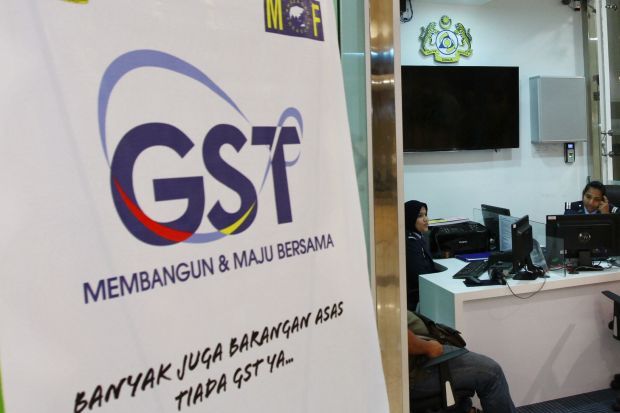Malaysia: GST not alien to most countries in the world
SINGAPORE: The Goods and Services Tax (GST), also known as the Value-Added Tax (VAT), has been implemented in most countries globally as a source of revenue.
Malaysia, is thus, no exception.
Depending on the country, the rate can be as high as 28 per cent and Malaysia is among those to have implemented the consumption tax on April 1, 2015 at a single digit of 6.0 per cent.
The GST implementation was timely as it was done at a point where Malaysia was faced with falling commodity prices.
Since June 2014 world crude fuel oil prices were around US$50 per barrel, halved from the fairly stable level of US$100 between 2010 and mid-2014.
Eventually, the GST managed to mitigate the fall in revenue not only from crude fossil oil, but also crude palm oil which saw prices fall below US$550 per metric tonne.
Like it or not, the GST for now, has proven to be the saviour of Malaysia’s economy in contributing about 18 per cent to overall revenue.
While revenue from commodities is recovering, it is the GST that has taken centre stage in helping manage the country over the past three years.
Revenue from the GST has been well channeled to some areas and the biggest beneficiaries are the Bottom 40 per cent (B40) income group, a household that earns up to RM3,000 a month.
The B40 is also a targeted group that receives BR1M, a direct monetary assistance, once a year.
Malaysians are categorised into three different income groups, namely the Top 20 per cent (T20), Middle 40 per cent (M40) and B40.
To be in the T20 group, a household needs to earn at least RM13,148, while for the M40 group it is up to RM6,275.
This year alone, there will be about seven million BR1M recipients involving a RM6.3 billion payment.
Regional Head of Research, Southeast Asia, Global Research of Standard Chartered, Edward Lee said the GST was a very important revenue stream for the Malaysian government.
“If we look at the GST revenue stream on its own and compare to commodity revenue, clearly it is a lot more steady and stable.
“In that sense, it is easier for the government to plan, when you have a more stable income stream,” he told Bernama.
Lee said this when asked about the idea of abolishing the GST and its impact on Malaysia’s economy.
Prior to April 1, 2015, there was no VAT or GST in Malaysia. Instead, Malaysia levied a Sales Tax of 10 per cent and a Service Tax of 6.0 per cent. – Bernama
Source: https://www.thestar.com.my/business/business-news/2018/03/28/gst-not-alien-to-most-countries-in-the-world/#kwYCSETIsefGycqV.99


 English
English




